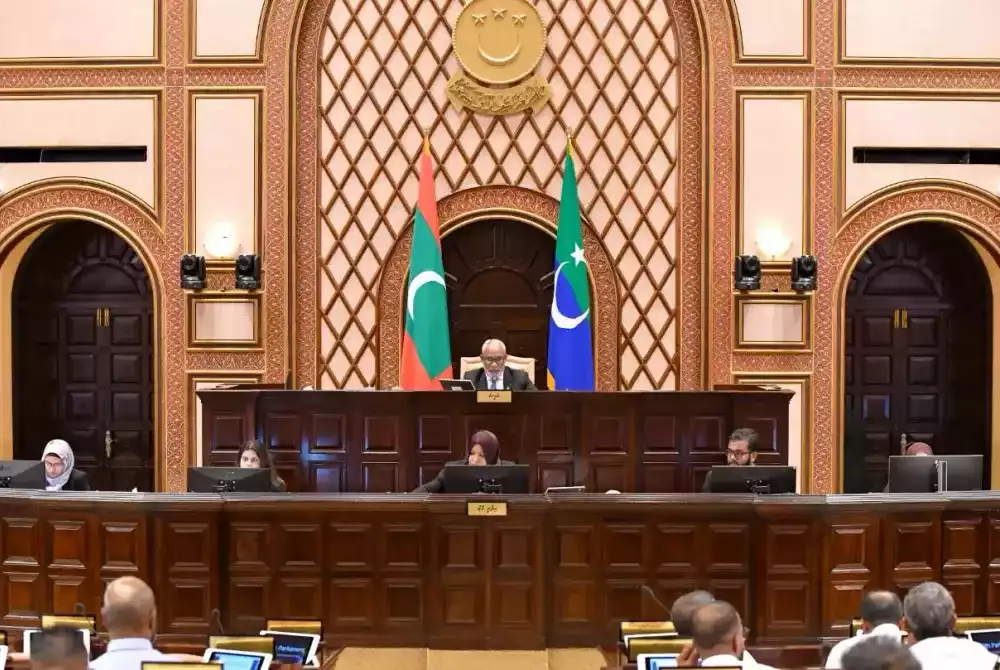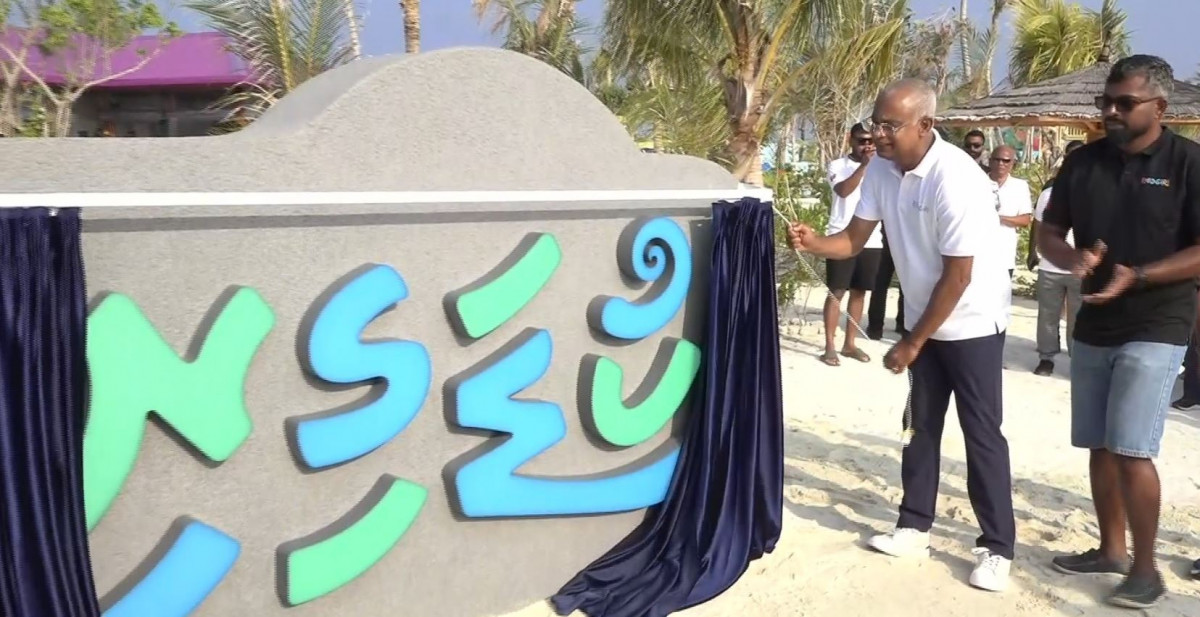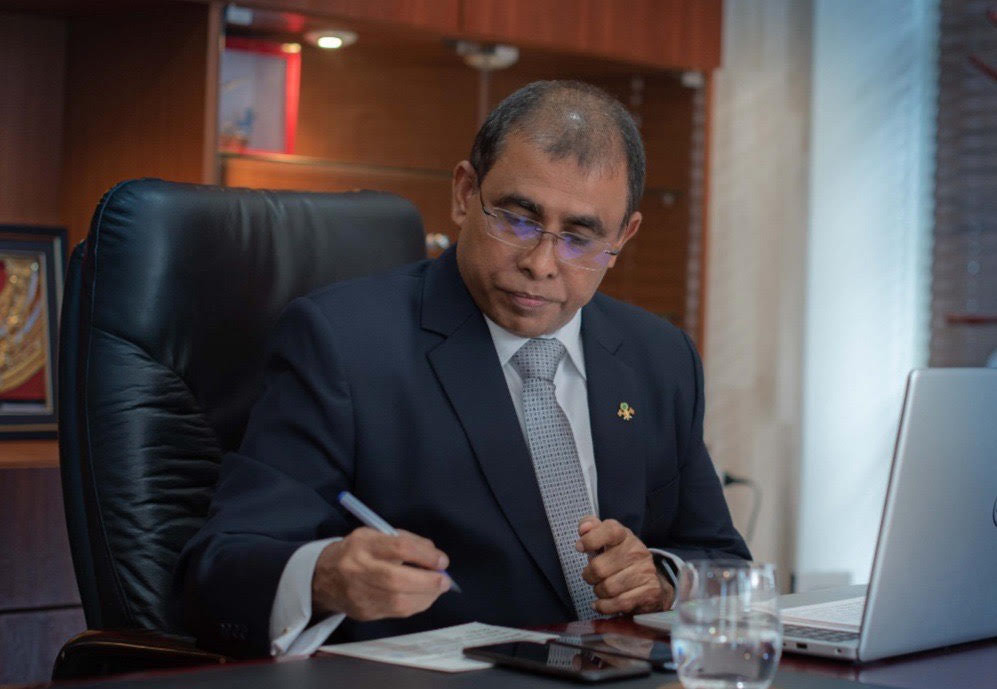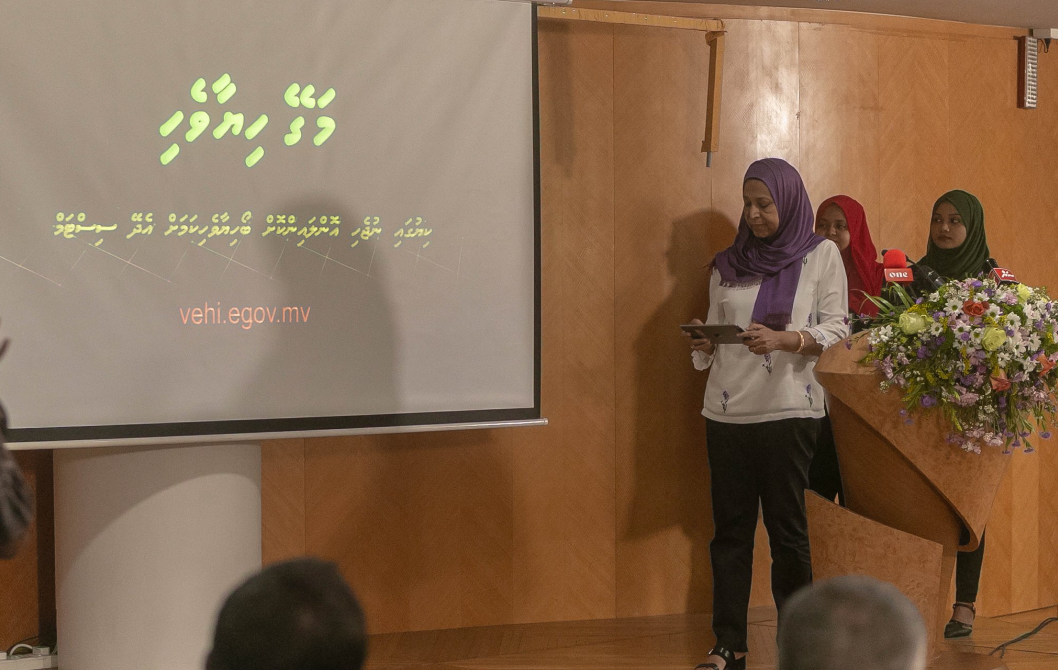Extraordinary Majlis sitting scheduled for Tuesday as well, agenda undisclosed
Majlis has scheduled an extraordinary sitting without disclosing the agenda, raising transparency concerns


A sitting of the People's Majlis
The People’s Majlis has scheduled another extraordinary sitting for Tuesday, despite being officially in recess. However, no agenda has been disclosed, raising concerns over the lack of transparency surrounding the session.
According to the Majlis Secretariat, a formal proposal was submitted under Article 45(d) of the parliament’s standing orders to hold one or more extraordinary sittings. A Majlis media official confirmed on Monday that an additional sitting will take place on Tuesday, but said that details of the agenda would be released at a later time.
The secrecy surrounding Tuesday’s sitting has raised suspicion, particularly among journalists and civil society observers. Many believe the sitting is being convened to pass the controversial "Maldives Media and Broadcast Regulation Bill", which was approved by the Independent Institutions Committee just a day earlier, on Monday.
The bill's committee approval came amid public protests and vocal opposition from journalists who were present to observe the proceedings. Despite their presence and visible dissent, the committee passed the bill with amendments that critics say make it even more dangerous for press freedom and digital expression.
As opposition to the bill grows, 151 journalists from 41 media outlets have signed a petition calling for its rejection. The petition has been submitted to both the President’s Office and the People’s Majlis, urging that the legislation not be passed, or ratified, should it make it through parliament.
Journalists argue that the bill threatens to dismantle independent media institutions, expand government control over content, and introduce mechanisms to regulate and penalize social media activity. They warn that the legislation is an unprecedented attempt to curb press freedom and centralize media oversight under a government-aligned commission.
Despite these warnings, government-aligned MPs from the ruling People’s National Congress (PNC), which holds a supermajority in the parliament, have publicly expressed their support for the bill and are pushing for its swift passage, including through posts on social media calling for urgent action.
The potential use of a supermajority to force through such a widely opposed bill, especially during a recess and without a clear agenda, has only deepened concerns about the erosion of democratic norms and the silencing of independent journalism in the Maldives.






